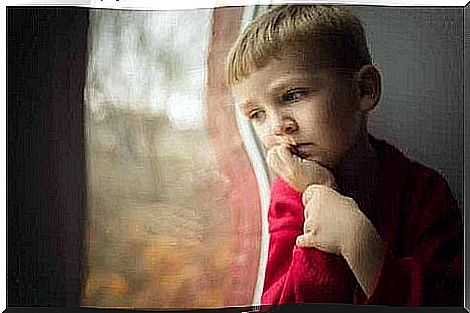Parents Engaged In Gaslighting And Emotional Manipulation

A form of psychological abuse is often associated with relationships. It is the kind of abuse in which one person tries to change how the other feels by making them believe that what they see, feel or believe is false. However, this abuse also happens to parents and children. In fact, parents who engage in gaslighting seek to exhaust their children emotionally.
The term gaslighting refers to a very insidious and deliberate type of manipulation that results in the victim questioning almost everything. Gradually, their self-esteem and identity are destroyed. This is due to the actions of an abuser who above all wants to be in control and to project his frustrations on the victim.
While this type of relationship has traditionally been linked to romantic partnerships, it seems that a different scenario often tends to go unnoticed. In fact, people become aware that they have been subjected to this type of abuse much later in life.
Being exposed to gaslighting as a child has really negative long term effects. After all, a child does not understand that they are being manipulated, let alone why the love for the mother or father is so conditioned.

Parents involved in gas lighting
Psychiatrist Irvin Yalom wrote in his book Love’s Executioner and Other Tales of Psychotherapy about a shocking case concerning a parent who did this. This patient was a woman who had come to therapy because she could not reconcile with the loss of her daughter more than ten years ago. However, a frightening fact emerged during the treatment.
It turned out that the woman had emptied all anger and disappointment over her youngest son. She even accused him of his sister’s death and suggested that he should have died instead. Yes, the woman suffered greatly from unresolved trauma. However, she had almost unknowingly abused her child, who later had to face the enormous challenge of overcoming it.
Not only psychology has shown interest in this current topic. In fact, it is also considered a sociological phenomenon, as mentioned in a study conducted by Dr. Paige Sweet of Harvard University. According to the sociological approach, gaslighting actually occurs due to differences in power. These can be differences in relation to gender, status or ties between parents and children.
How are parents doing gaslighting?
Parents who engage in gas lighting give their children frequent “inoculations” of guilt. Then they add small doses in almost all situations to increase the degree of control they have over their children. They can also:
- Involve children in situations for which they are not responsible. For example, if their partner is not doing well, they will blame their child.
- Have a favorite child, known as the baby or the trophy child. They gaslight the other sibling, which has led them to believe that they are less valuable than the favored child. Or they tell this sibling that they are behaving badly and are not worthy of any devotion.
- Tell lies. For example, the mother may say that she has had a bad day because the child upset her that morning.
- Assess or ignore the child’s talent or value.
- Often attack any passion or interest your child has.
- Socialize their child. This is because they do not want the child to become independent in order to keep them under their control.
Parents who engage in gas lighting, consequences of psychological abuse
As we mentioned above, many people are not aware that they have suffered any kind of psychological abuse until they reach adulthood. In fact, it is quite common for some of these distorted behaviors that parents have instilled to be an integral part of their personality.
- An example is not to rely on one’s own judgment. If they have made you perceive what they think, feel and think is wrong, they will find it difficult to make their own decisions.
- They generally develop personal insecurities. Furthermore, they find it difficult to trust others in adulthood.
- They often have low self-esteem and identity problems.
- They get used to putting their own needs at the back.
- They may tend to internalize emotions by dampening them or neglecting them. This means that they may tend to somatize their emotions.
How to recover from a childhood with gaslighting
Those who have been victims of this type of abuse rarely come out unscathed. However, some can manage it by focusing all their pain on a distraction such as work, love or sports, etc.
Yet the wounds are still there. In fact, they usually manifest themselves in the form of post-traumatic stress disorder. In fact, it is important to remember that these childhood experiences actually constitute a form of psychological abuse. Therefore, expert psychological help is always advisable.
The individual needs healing so they can rebuild their self-esteem and identity. They also need to cleanse themselves of the guilt that their parents projected on them for so long. Furthermore, they must free themselves from the perspective that their manipulator gives them, that they are worthless and unimportant. This process will take time.









